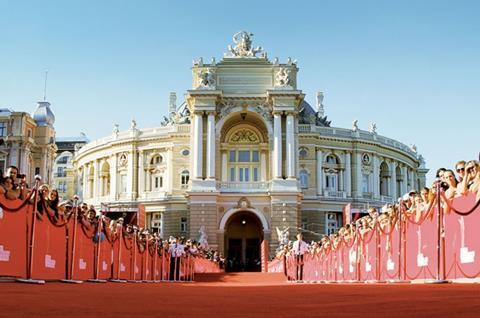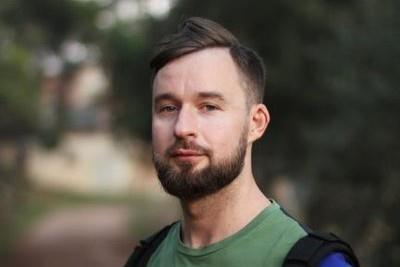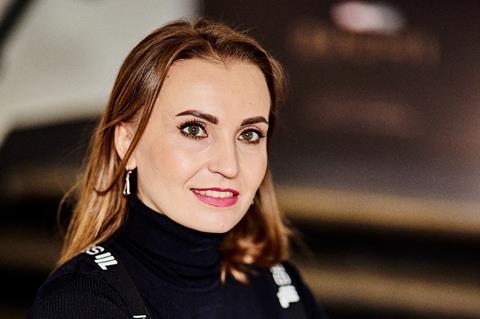
A group of Ukrainian film festival progammers and organisers came together online this week to discuss how they are keeping their events alive amid the Russian invasion.
Viktoria Leshchenko, programme director of Docudays UA Film Festival, said the festival had been in the midst of preparations for this year’s edition, scheduled to run from March 25 to April 3, when the Russian invasion began on February 24.
“I clearly remember on February 23, a day before the war started, we had a team planning meeting,” she said. “It was obvious that something was going to happen but, until the last moment, nobody believed it. We then started thinking of Plan B, but actually we didn’t have one.”
The decision was then taken to cancel the 2022 edition of Docudays and some members of the festival team managed to relocate abroad including Leshchenko, who left Ukraine with her mother and is now staying in Berlin. But most of the festival team is still in Ukraine, primarily in the western part of the country.
The festival has now been focusing its energies on a three-pronged strategy in response to the Russian invasion.
“Firstly, there is cultural diplomacy where we are making the Ukrainian voice visible abroad at international film festivals as well as supporting the boycott of Russian culture,” Leshchenko explained. “We have also been supporting Ukrainian filmmakers by launching the DOCU/HELP fund and providing them with very basic survival grants.”
In addition, Docudays has created an online platform to archive first-hand video footage documenting the crimes perpetrated by the Russian army in Ukraine. This material will then be made available for future researchers and documentary filmmakers who are looking for content to include in their work.
Curating programmes abroad

Meanwhile, the oldest cinema event in Ukraine founded in 1970, Kyiv’s Molodist International Film Festival, was to have held its next edition from May 28 to June 5.
“But that is naturally impossible at the moment,” said Bohdan Zhuk, programmer of the competition and non-competition programmes and curator of its LGBT+ programme Sunny Bunny. Zhuk said the organisers have been forced to postpone the festival indefinitely.
“We are not sure how the situation is going to develop, but still hope that we can organise the festival this year,” Zhuk said. “It will have to be from scratch because everything we have worked on has been cancelled.”
Zhuk revealed the festival has “received numerous requests about curating programmes of Ukrainian films for other festivals and institutions.”
“We have stated that we will be cooperating with them on the condition that there won’t be any Russian films in their programme selection,” he explained. “Neither we nor the filmmakers we intend to support and promote will find it acceptable to be alongside the representation of the culture of the aggressor whose aim is to erase us and our culture.”
Odesa film festival
The prospect of Odesa International Film Festival being held as planned from July 23-30 is similarly up in the air, according to the festival’s executive director Anna Machukh.
“It totally depends on the result of our army,” she noted. “But we can have a Plan B, a Plan C and a Plan D. Plan B would be to have the festival online, Plan C would be to postpone the festival to September or October and then there is Plan D because we have received a lot of offers from our partner film festivals in Europe to hold some programmes at their venues.”
“It may be that we have such a mixed format held in different countries and with online and live performances in Ukraine if this is possible,” she suggested.

Machukh is also a co-founder and the executive director of the Ukrainian Film Academy. “From the first days of the full-scale invasion, we threw all our efforts into working on the information front to prevent Russia from spreading propaganda and we started the campaign to boycott Russian cinema.”
In addition, the Film Academy has been working with the Ukrainian State Film Agency and other film industry organisations on setting up the CinemAid Ukraine Charity Film Marathon to show Ukrainian films at cities around the world to support the country’s film industry and the filmmakers and their families affected by the war.
The first fundraising screenings have already been held in Poland, Turkey and Canada and more are to follow in countries including France, Germany, the UK, India, South Korea and the US, drawing from a catalogue of more than 75 feature films and shorts.
Moving online
Meanwhile, two festivals scheduled to be held this autumn – Kharkiv’s MeetDocs Film Festival and Lviv’s Wiz-Art short film festival – may have to resort to an online-only format due to the uncertainty of the current situation. The Kharkiv festival was founded by Berlin-based Ukrainian producer Yevgeniya Kriegsheim in 2017 and has become the only and largest film event in the eastern part of Ukraine. Kriegsheim’s team certainly know how organise the festival in the virtual space.
“In 2020, we had to move into a digital-only format in just one week due to Covid,” she recalled.
But last year’s edition was held in a hybrid format and also featured the launch of an international competition with films by international filmmakers shot in and about Ukraine.
Trauma
Olha Raiter, artistic director and co-founder of the Lviv International Short Film Festival Wiz-Art, is thinking ahead to the kind of festival that will work best for Ukrainian audiences after the war.
“It will not go back to the way it was before,” she suggested. “We should find some other way to talk to the audience because many people will be traumatised.”
Raiter, who is now living in the German town of Bautzen and will be presenting a programme of Ukrainian shorts at the Filmfest Dresden on Sunday evening (April 10), agreed that “the pandemic taught us how to present a festival online”, pointing out that the Covid restrictions led to the creation of the festival’s own online cinema Big Short.
While the festival is still accepting entries for the next edition – scheduled to be held from October 3-9 – Big Short is now raising funds for the Voices of Children Foundation from the viewing of Ukrainian shorts and feature films.
The festival executives were talking at an event hosted by the European Network for Cinema and Media Studies (NECS) and the Film University Babelsberg Konrad Wolf on Wednesday April 6.
























No comments yet